I took a peek at your bio and noticed this was the first historical fiction novel you have written. What brought you to write this genre?
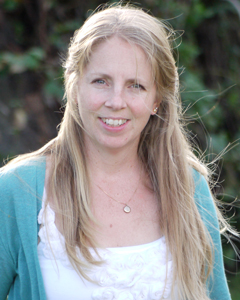 It took me a long time to realize it, but I have always been drawn toward historical fiction. I’ll read almost anything, but even as a kid, the ones I thought of as my favorites—Little House on the Prairie, Anne of Green Gables, Goodnight Mr. Tom—all of them were historical. I’m fascinated by the Victorian and Edwardian periods in particular, I think because it’s right before the huge technological advances of the 20th century and yet it still feels very familiar in a lot of ways. I like that in historical fiction, there’s this distance that allows me to get out of my own experience and create characters who are different from me but who are grappling with issues that feel very contemporary. For example, while I was in the middle of writing I Shall Be Near To You, we were in the midst of the war in Iraq and the debates about allowing women in combat and allowing gays to serve openly. And there I was, already writing about those same issues, but in a different context. It was really interesting to see how these issues that were coming up in my writing were issues our nation is still grappling with over a hundred years and fifty years later. I didn’t set out to do that, but it makes sense—that’s why people are interested in history and historical fiction. It’s still relevant.
It took me a long time to realize it, but I have always been drawn toward historical fiction. I’ll read almost anything, but even as a kid, the ones I thought of as my favorites—Little House on the Prairie, Anne of Green Gables, Goodnight Mr. Tom—all of them were historical. I’m fascinated by the Victorian and Edwardian periods in particular, I think because it’s right before the huge technological advances of the 20th century and yet it still feels very familiar in a lot of ways. I like that in historical fiction, there’s this distance that allows me to get out of my own experience and create characters who are different from me but who are grappling with issues that feel very contemporary. For example, while I was in the middle of writing I Shall Be Near To You, we were in the midst of the war in Iraq and the debates about allowing women in combat and allowing gays to serve openly. And there I was, already writing about those same issues, but in a different context. It was really interesting to see how these issues that were coming up in my writing were issues our nation is still grappling with over a hundred years and fifty years later. I didn’t set out to do that, but it makes sense—that’s why people are interested in history and historical fiction. It’s still relevant.
I personally am an amateur history buff so I really appreciate it when a work like this gets the history right. How did you go about your research and did you find that aspect of writing historical fiction difficult?
Getting the history right was a huge priority for me. I didn’t want anything to detract from the story being believable, because so many people are already surprised to learn women really did fight. I wanted the story to be 100% credible, enough so that Civil War buffs could pick it up enjoy it just as much as someone who didn’t know anything about the Civil War. The initial research for the book happened 10 years before I started writing. That’s when I stumbled across the collection of the real Rosetta’s letters home to her family. I found them in my college library while looking for a primary source to write a paper on. I wrote the paper about Rosetta Wakeman and in my research learned about the 200 plus other women who also disguised as men and fought in the Civil War.
Once I finally sat down to write the novel, I basically researched as I wrote. I read other soldiers’ and civilians’ letters about the war, to get details (the bone ring Hiram carves, for example, is a detail culled straight from one of those letters, as is the horse galloping across the battlefield, its entrails dragging). I heavily relied on historians’ books about the battles that appear in the novel and also battlefield maps and historic photos. I researched 19th century farming and learned how to do some of the kinds of chores Rosetta would have done (making soap, milking). I went to a Civil War reenactment to hear the cannons and muskets and caissons. I toured the battlefields of Bull Run and Antietam, tracing my characters’ route. For the most part, I enjoy the research and everything I learn. There are times it drives me crazy—like when I spent hours trying to figure out whether the stone bridge my characters cross at Antietam had two arches or three (it wasn’t the famous bridge in all the photos), or when historic fact interferes with what I wanted to have happen. But mostly the history serves as inspiration (the dance the soldiers have in the novel, for instance, is inspired by a real event). I really enjoy the human side of history, so researching the battles—the troop movements, the strategy—was probably my least favorite aspect of my research, but it was important to me to get those details right.
As a guy, the one thing that bugs me about historical fiction with a love story is it so often turns into a romance novel (while there is nothing wrong with that of course, it is not my cup of tea). I was amazed and pleased that this book managed to have a very touching love story but didn’t fall into being a stereotypical historical romance novel. Was that a tightrope you were aware of, or did avoiding that not really come into your thinking?
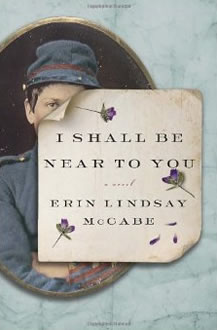 It’s funny you mention that, because prior to writing this book, I wrote a “practice novel” (which is terrible and will never see the light of day) which actually is a historical romance. I was in the midst of editing and revising it when I first heard Rosetta’s voice. So while I wouldn’t say that I was consciously avoiding writing a romance, I definitely was aware of wanting this story to have a broader appeal and be about much more than Rosetta and Jeremiah’s courtship. That said, I am a huge sucker for a love story, and for me, this story didn’t make sense any other way. Despite the fact that the real Rosetta went into the Union Army alone, most of the women we know about did go with husbands or fiancés or lovers. That struck me as an incredibly unique experience that I wanted to explore, especially since we typically think of wives being left behind. I was really curious about what it would look like for a wife to go into battle with her husband and what kind of conflicts that would create between them and their comrades. My agent told me early on that we learn about characters by seeing what it is they love, and so in that sense, I think every story is a love story.
It’s funny you mention that, because prior to writing this book, I wrote a “practice novel” (which is terrible and will never see the light of day) which actually is a historical romance. I was in the midst of editing and revising it when I first heard Rosetta’s voice. So while I wouldn’t say that I was consciously avoiding writing a romance, I definitely was aware of wanting this story to have a broader appeal and be about much more than Rosetta and Jeremiah’s courtship. That said, I am a huge sucker for a love story, and for me, this story didn’t make sense any other way. Despite the fact that the real Rosetta went into the Union Army alone, most of the women we know about did go with husbands or fiancés or lovers. That struck me as an incredibly unique experience that I wanted to explore, especially since we typically think of wives being left behind. I was really curious about what it would look like for a wife to go into battle with her husband and what kind of conflicts that would create between them and their comrades. My agent told me early on that we learn about characters by seeing what it is they love, and so in that sense, I think every story is a love story.
Rosetta’s journey is pretty heartbreaking. Did you always intend for her story to end like that?
I actually wrote what I think of as the most heartbreaking scene in the novel very early on in the process, so yes, I always knew it was going to be sad. I just don’t think I could have written a Civil War novel with a happy ending and had it feel authentic. The real Rosetta didn’t survive the war, just like many of the soldiers, so I felt like it was unrealistic to expect that all of my characters would make it out alive. Part of the story of the Civil War is the immense grief that it caused—every family was touched by it, no family made it out unscathed. So I guess I wanted to address that national sorrow but on a very intimate level—and as I wrote I started to see so many ways in which we’re still dealing with that sorrow today. Then too, I just couldn’t imagine an easy ending for the women who fought—even if they survived, even if they went back to being wives and mothers afterwards—they couldn’t really talk about what they had done, they had to hide the war’s impact on their psyche even more perhaps than the male soldiers did. They had to keep carrying that secret. Added to that, it must have been incredibly difficult to go from being treated as an absolute equal, from being a citizen—some of the women even voted using their male aliases—to no longer being able to earn their own money or have a bank account or own property.
I am curious what brought you to put Clara Barton into the book. Was there something specific you were going for in her appearance, or was she just a personality you were interested in and wanted to include?
There are two main reasons Clara Barton is in the novel. The first was that I wanted to portray as many different ways women participated in the war effort as possible—as soldiers, as spies, as nurses in the hospitals and on the battlefield. I think the idea of a female battlefield nurse doesn’t strike us as so remarkable now, but at the time, Clara Barton had to fight for the right to be the first officially sanctioned battlefield nurse. And even more remarkably, she took all her own supplies, hired her own teamsters. She really wanted to be there. I wanted Clara to serve as a counterpoint to Rosetta—to show that there were other options for women that still required courage and strength, but which were also perhaps seen as more acceptable for a woman, more feminine. The women who chose to be soldiers—that was what they really wanted to be. There were other ways they could have stayed with their husbands and served their country, but they wanted to fight.
The second reason is because Clara Barton really did serve at Antietam. There are two stories about her that I love, both of which took place there. The first is that she nursed a young female soldier, Mary Galloway, who had been shot through the neck and back. Galloway had enlisted to be with her lover and was trying to find him. Clara Barton helped her locate the young man in another field hospital and the pair eventually married. The other story about Clara Barton is that while she was nursing soldiers at The Cornfield, a bullet grazed her arm and killed the soldier she was helping. She was so brave and was out there in the thick of it. Since she was working right where the 97th New York State Volunteers (the fictional Rosetta’s regiment) fought, it seemed entirely plausible that she might have nursed men from that regiment, and so I felt like it was supportable that as she was searching the field hospitals, Rosetta could have met Clara Barton and been recognized as a woman.
I really did enjoy this book quite a lot. I know you are still working on the promoting it, but do you have any thoughts on your next work? Is it going to be another historical fiction?
I’m so glad that Rosetta’s story resonated with you. It makes me so happy to hear that these characters who feel so real to me live for other people as well. I’m working on another historical novel now, set just at the turn of the century. The original inspiration for the character was the adopted daughter of female serial killer Belle Gunness, so it’s a dark story about love and secrets and revenge.
Again, thank you for taking the time to answer my questions. While this is the first work of yours I have read, I am definitely a fan now and look forward to reading whatever you publish next.
Oh my goodness—you are so welcome! It was absolutely my pleasure!





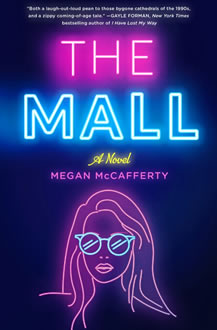
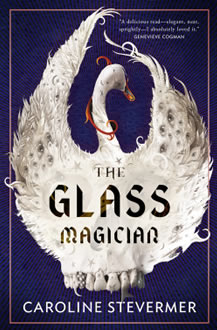
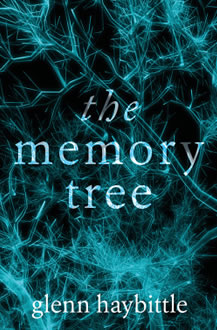
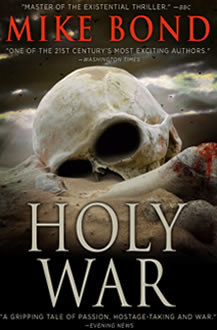
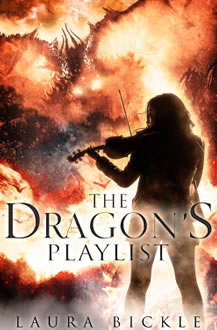
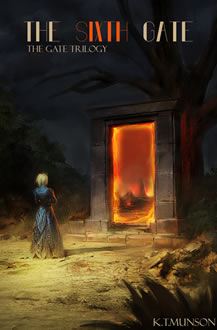
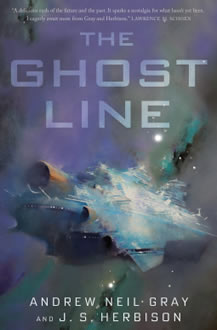
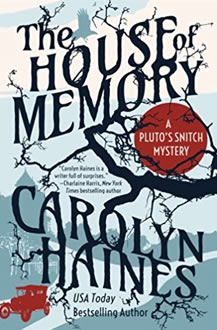
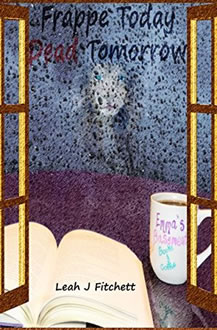
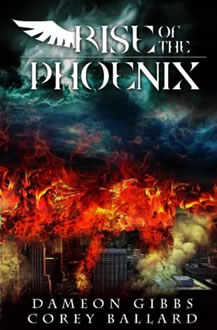
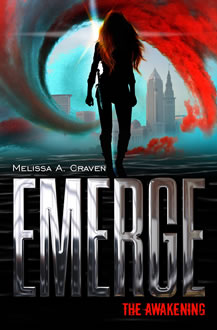
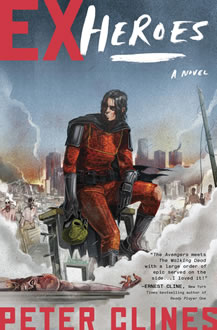
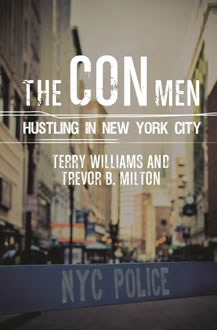
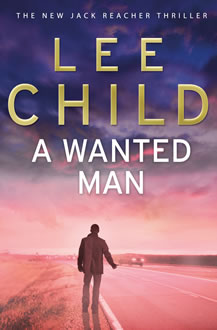
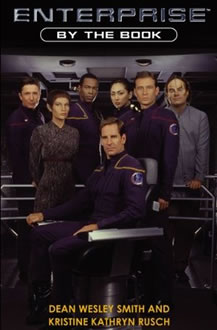
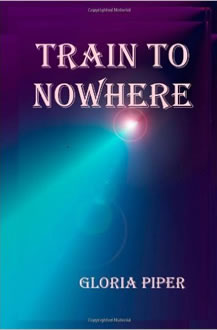




Leave a Reply